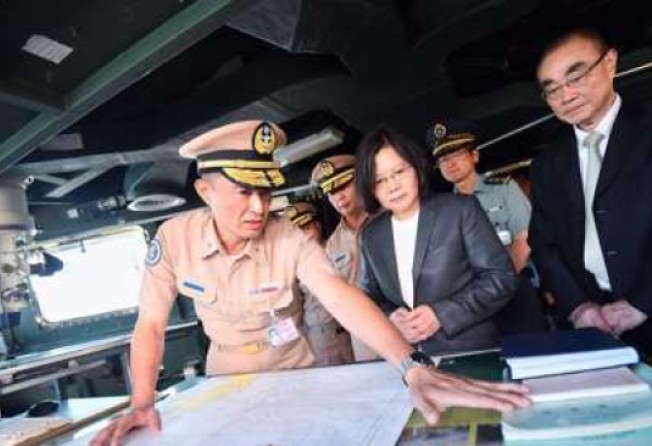Permanent Court of Arbitration’s ruling creates a common ground
Taiwanese leader Tsai Ing-wen has won rare mainland praise for her stand on Chinese sovereignty of Taiping Island, offering a chance for the sides to work together

Beijing and Taipei have found common ground in the Permanent Court of Arbitration’s ruling rejecting their claims in the South China Sea. Taiwanese leader Tsai Ing-wen has won rare mainland praise for her stand on Chinese sovereignty of Taiping Island, determined by the tribunal to be no more than a rock and therefore unqualified for a 200-nautical-mile exclusive economic zone. The anger over the decision has been identical, making for political allies where there has been tension. An opportunity has arisen that offers a chance for the sides to work together for the good of the nation and in doing so, improve relations.
Tsai’s refusal since taking office in May to acknowledge the 1992 consensus between Beijing and the island has caused deep strains. Under the agreement, the mainland and the then-governing Kuomintang recognised there was one China, but how they interpreted that was up to their own definition. The deal is vital for good ties and her failure to admit its existence has led to a communication freeze, although cross-strait commercial and business links remain strong. The mainland media has not missed an opportunity to find fault with her or her independence-leaning Democratic Progressive Party.
But the tide has turned since last Tuesday’s ruling, with mainland praise for Tsai’s rejection of the conclusion that no government had a legal right to control the contested waters. She briefly boarded a naval warship on Wednesday before it left to patrol the area around Taiping, also known as Itu Aba, telling the crew their mission was to “demonstrate the resolution of Taiwanese people in defending our national interests”. Taiwan has administered the 46-hectare island since 1956; it and Beijing have South China Sea claims based on sovereignty from a historical perspective. The mainland’s vice-foreign minister, Liu Zhenmin, applauded Tsai’s position, saying it was the common interest and responsibility of both sides to protect Chinese maritime rights.
Tsai’s stand puts her at odds with the US, the island’s main security protector. The case was taken to the court by Washington’s ally, the Philippines, against China’s claimed sovereignty. The US has been a vocal supporter of those with rival claims to China’s and told all sides to abide by the ruling.
Beijing and Taipei have been brought together by the tribunal’s decision. A chance has arisen for cooperation. Neither side has accepted the ruling, but an opportunity presents itself for them to work together with rival claimants to achieve the peaceful resolution that Beijing seeks.